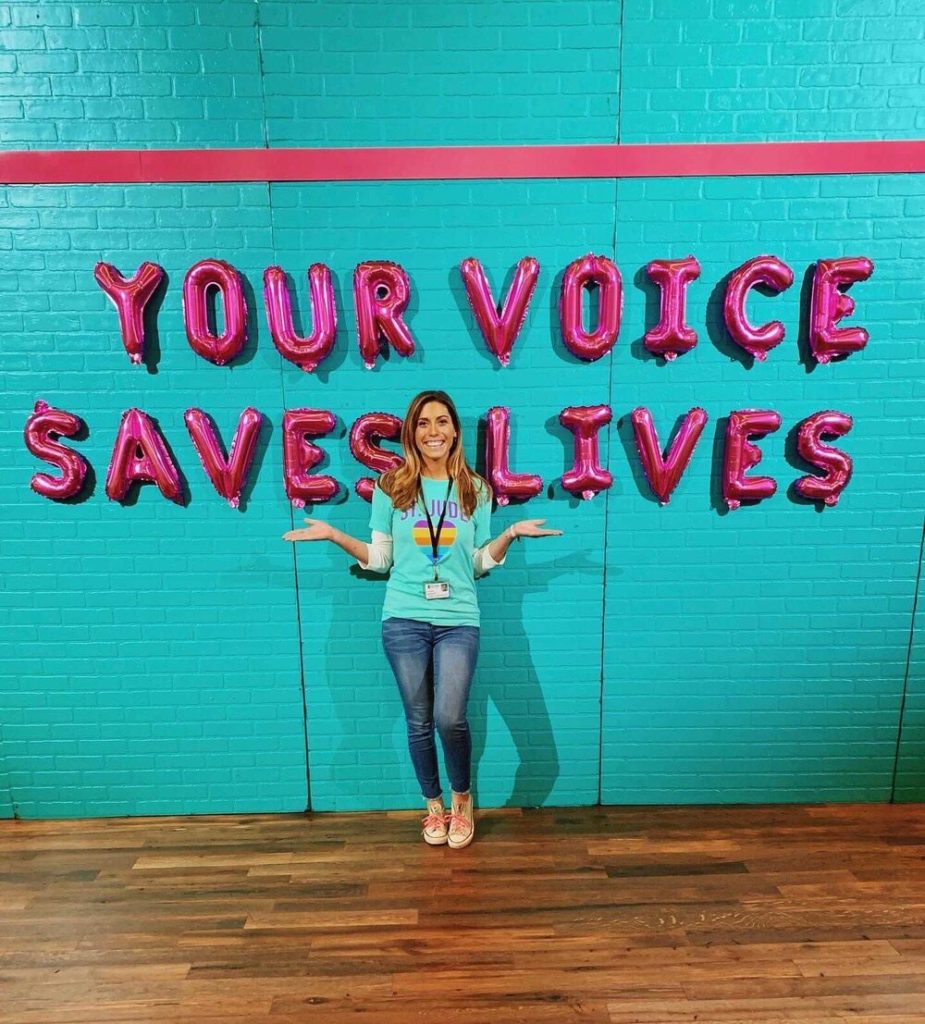
Each December, Christmas in Memphis kicks off with the St. Jude Memphis Marathon Weekend. It’s considered one of, if not the single largest fundraising days for what some people call the “Best-Worst Place” (once you digest the name, it makes sense!). Being around downtown on race day, and especially participating in the event, is truly magical.
2020 has taken away many of these magical moments from us. However, there will be many people pressing on, fundraising and running many miles this weekend as St. Jude’s mission must continue.
Likewise, there are education initiatives that St. Jude continues to push out to help out not only their patients but also young learners around the city and country. Alyssa Soto-Phipps reached out to us to help spread the word about these amazing resources. Check out our interview with her and be sure to check out the resource links!
Q1: So a little background first on Alyssa...are you yourself an educator or how do you interact with the St. Jude education program?
As a member of the Youth and Community Engagement team here at ALSAC/St. Jude Children’s Research Hospital, I oversee the fundraising and awareness efforts for St. Jude within youth and education communities across the country. Our team specializes in developing programs that enrich existing academic, fitness and character-building lessons and demonstrates the power of empathy for children at home and in the classroom.
Q2: I'd imagine some people might not consider that patients spend multiple weeks or months at St. Jude, yet school and learning must continue, right?! How does school at St. Jude look for a patient?
Yes! I always make a point to mention the St. Jude School Program any chance I get, because it truly plays such an important role in the treatment St. Jude provides to patients and their families. For students thrust into an unfamiliar hospital environment, school can help provide a feeling of control and a sense of normalcy.

The St. Jude School Program by Chili’s offers patients a way to focus on the future and keep up with schoolwork while they are at the hospital receiving treatment. The program functions just like other schools with classrooms open every day, a computer learning lab and a teacher dedicated to assist students from grades K-12. All teachers are licensed in the State of Tennessee, and the program is accredited by the same organization that accredits most of the nation’s public and private schools. Because St. Jude has patients from around the world, the school also has three ESL (English as a Second Language) coordinators.
Upon arrival, St. Jude teachers will contact a patients’ hometown school and work with them to coordinate an educational plan that allows the patient to remain enrolled while receiving treatment, using books and curriculum sent over from their school. In the case that it is not possible to get assignments from a child’s home school, St. Jude works to develop the appropriate curriculum.
At St. Jude, we make the most of opportunities to celebrate with traditional school events for students such as Prom and Graduation—and once a child is ready to return back home, specialists are available to assist with a re-entry presentation for teachers and classmates that is individualized with information that the patient’s family wants to share and covers any changes the patient may have experienced during treatment.
Q3: St. Jude has been very involved in virtual learning scenarios longer than Covid-19 has been around. How has this experience been leveraged and shipped out beyond the doors of the hospital?
I think this year has given us all a unique perspective into how difficult it can be for families when an unexpected disruption to child’s routine or learning environment occurs. When you think about it, St. Jude has had to navigate through the world of distance learning and health-related separation in children for more than fifty years. The same social and emotional challenges that a patient faces when they are forced to leave their home and school in order to receive treatment can be seen in classrooms and homes across the country today. Because of this we have taken additional steps to help better support children, parents and teachers during this with a new educational resource hub that hosts a suite of free resources and activities that can be used with children at home or in the classroom.
Q4: Project-based learning has been a very popular trend (for example Crosstown High School). What ways has St. Jude been able to use its own story and everyday operations as a case study?
We recently partnered with educators to launch a new STEM-based program that meets the Next Generation Science Standards and empowers little learners to help make a difference for the kids of St. Jude.
The St. Jude EPIC Challenge (Experimenting, Prototyping, Inventing and Creating) curriculum is free and follows a flexible five-lesson format that guides students through the research-design process by asking them to research, imagine, design, create and present an invention or idea they think could help improve life for other kids like those at St. Jude. As children bring their ideas to life, family and friends are encouraged to support by “funding” a student’s invention by making a donation on their project page to support the kids of St. Jude. Every dollar raised through service learning programs like the St. Jude EPIC Challenge helps ensure that families never receive a bill from St. Jude for treatment, travel, housing or food—because all a family should worry about is helping their child live.
Through project-based learning programs like the St. Jude EPIC Challenge, St. Jude has been able to promote collaboration, innovation and ingenuity in a way that empowers children to use their brainpower for others. The EPIC Challenge challenges students to get creative and think critically by prompting them to think of what children, families, and doctors at St. Jude may need and imagine solutions. It’s been truly inspiring to see some of the ideas that kids have been able to come up with when asked to find ways they can support others.
Q5: I've had the pleasure of touring the hospital and participating in the Memphis Marathon weekend the past two years. What are some personal favorite things or experiences about your workplace?
I seriously don’t even know where to start! Everything St. Jude Children’s Research Hospital does is so intentional. From the design to the menu, everything is concept of the hospital with the patients and families in mind. I think my favorite moments at St. Jude have been in the Kay Kafe, because, as the hospital’s only cafeteria, it truly is the central point where patients, family and staff come together. Not only that, but the food is delicious! We have a garden on campus that grows fresh fruit and vegetables our chefs will use to create meals—and at times when a patient is missing special dish with family back home, they will get the recipe and recreate it. A million tiny gestures such as these are what make up the mission of St. Jude.
Q6: How do you best enjoy Memphis?
Well, before these strange times I would love to find any place with a patio and live music to enjoy with friends. Right now, I mostly enjoy Memphis by walking through different parks and neighborhoods with my husband each weekend and enjoy all of the local food via curbside pickup.

Other Resources
Testimonials:
St. Jude Educator Ambassador Network
Educators for St. Jude Newsletter where parents and teachers receive exclusive access the free downloadable resources, lesson plans and activities as well future content from our Ambassador Network.

